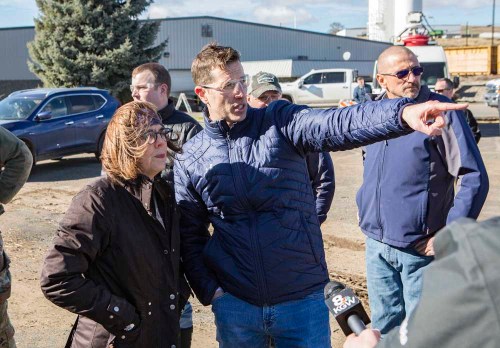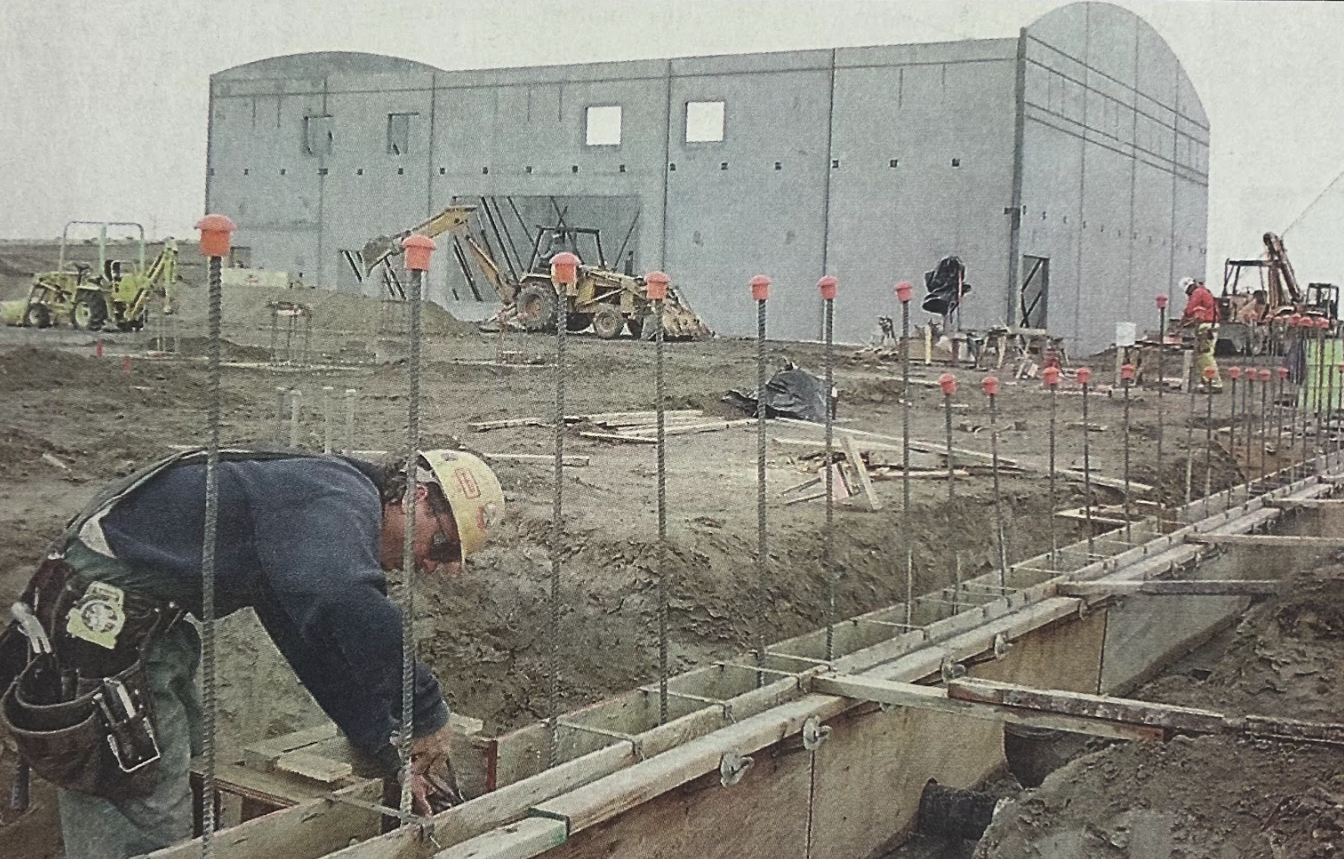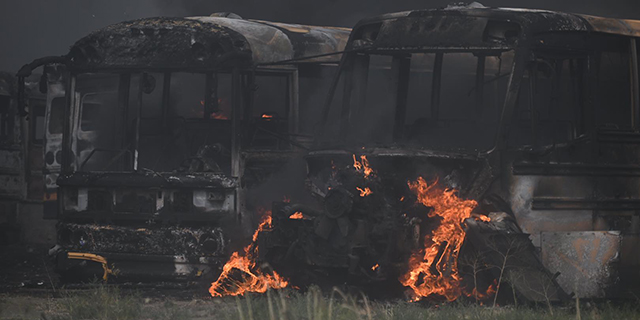Pendleton flood control faces long-term challenges
Published 5:00 am Saturday, September 12, 2020

- Jeff Runels, center, Keystone president and CEO, indicates to Gov. Kate Brown the extent of the damage to their McKennon Road manufacturing facility on Feb. 14, 2020. The plant was severely damaged by floodwaters from the Umatilla River as a result of the Feb. 6, 2020, flooding.
PENDLETON — Two major floods in two years means Pendleton is still coordinating both relief efforts in 2020.
The McKay Creek flood of April 2019 damaged parks and homes, appearing to be the worst Pendleton flood in years until the Umatilla River flooded in February, destroying several homes and killing a woman who lived just outside town.
Pendleton City Manager Robb Corbett said the Federal Emergency Management Agency has made funds available to individual residents, and he’s heard positive reports from people who’ve applied for them.
The damage to Pendleton’s infrastructure — $1.8 million in damage to a levee that protected industrial employers like Keystone RV Co. and Cor-Tek — was covered by Business Oregon, and Corbett said the city is applying for FEMA funds to reimburse the state.
When the city completed repairs on the levee, it had enough leftover funds to help repair the part of the levee that extended outside city limits. Although Umatilla County is responsible for the levee, whether inside or outside city limits, Corbett said the Pendleton government has led the effort to repair the levee inside the city because of its interest in protecting some of the city’s largest employers.
Keystone RV was hit hard by the flood, forcing the Indiana-based company to close one of its manufacturing facilities.
Jeff Runels, the CEO and president of Keystone, said the facility has since been repaired and reopened, but another crisis has kept the facility from operating at full capacity. COVID-19 has affected Keystone’s supply chains even as demand for RVs has increased during the pandemic.
Runels said there isn’t much the company can do until the pandemic’s national picture improves.
“It’s still a process right now,” he said.
Corbett said the city’s attention now turns to long-term mitigation the city and other government agencies could take to prevent another Umatilla flood from happening.
The city and other stakeholders would need to meet in the following weeks, Corbett said, but one action could be updating the floodplain map. When the Umatilla began expanding past its banks in February, it not only flooded residences in the Riverside area, but it also inundated businesses west of Highway 11, which isn’t a part of the current floodplain.
Pendleton is further along in the process with McKay Creek, with the city council set to approve applications for FEMA grants for updated floodplain mapping and a McKay Creek water basin study.
The city spent this past spring dredging the creek bed to improve the creek’s resiliency to future floods. But Corbett said much of the progress made from the dredging was undone once the creek started flowing again. A local water control district used to dredge the creek each year, but laws meant to protect salmon and steelhead habitats have made annual work on the creek infeasible.
“The whole system doesn’t work the way it was designed when they built the dam,” he said.
The urgency of addressing the issue is compounded by a recent Confederated Tribes of the Umatilla Indian Reservation study that anticipates less snow and more rain in the region in coming years, increasing the likelihood of flood events.
Corbett said the entire McKay Creek basin needs an analysis from its origins in the Blue Mountains to its confluence with the Umatilla River to figure out the best way to balance the needs of irrigators, creekside residents and the environment.
He said the effort to prevent future flooding could be aided by the U.S. Bureau of Reclamation and its management of the McKay Dam, which collects water into a reservoir before controlling its flow into Pendleton. More difficult will be finding a solution for the Umatilla, Corbett said, because it flows freely on its way to the Columbia River.
Preventing future flooding will be critical to the hundreds of residents who live near the river.
The Oregon Legislature gave Pendleton $7.5 million to replace some of the affordable housing destroyed by the floods.
Although the city and state agreed to build a new 80-unit affordable apartment complex behind the Pendleton Heights housing development as the replacement project, the private developer responsible for building the housing was reliant on $3 million in gap funding from the Oregon Housing and Community Services Department to get the project off the ground.
Those funds came from lottery bonds, and with the Oregon Lottery taking a huge hit from the COVID-19 shutdowns, that money is no longer available.
Corbett said the city is exploring ways to obtain that funding from the state, either through a competitive grant process or through the next legislative session in 2021.
“If we can’t get that funding, that project might be put on hold,” he said.





